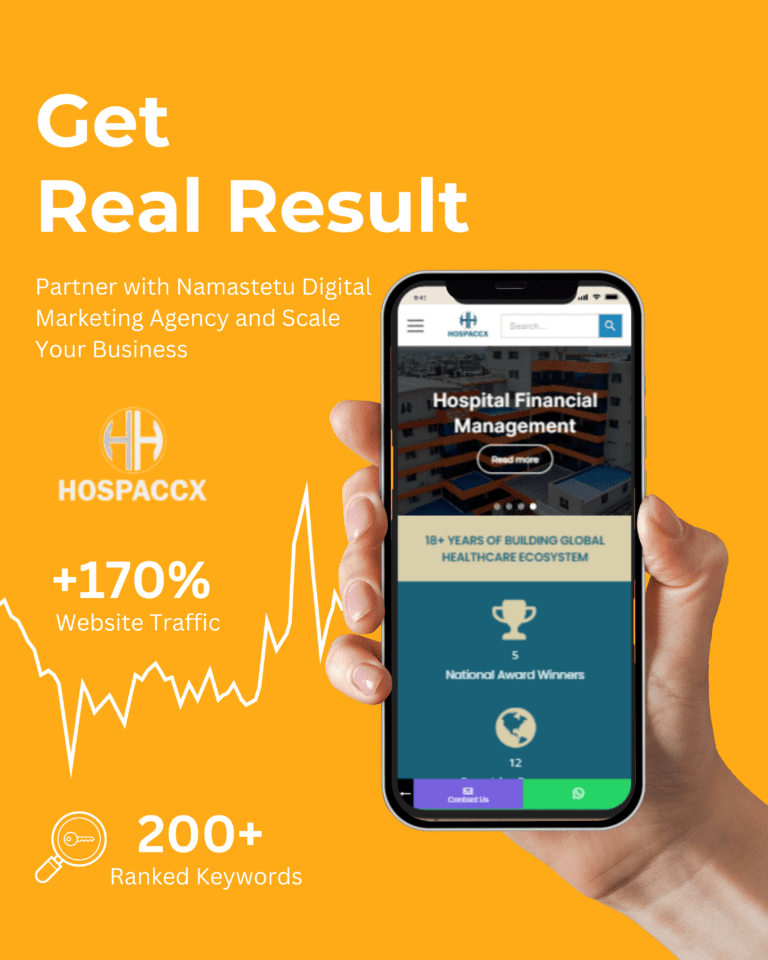As technology continues to evolve, having a strong online presence is crucial for businesses of all sizes. As a result, the demand for efficient and effective web development solutions has skyrocketed. Among the various platforms available, Shopify has emerged as a popular choice for e-commerce businesses. But is Shopify good for web development in general? Let’s dive deep into this question and explore the various aspects of web development that Shopify addresses.
Understanding Web Development
Before we assess Shopify’s capabilities, it’s essential to understand what web development entails. Web development is the process of building and maintaining websites. It encompasses various aspects, including:
- Front-End Development: This involves creating the visual elements of a website that users interact with directly. Front-end developers work with HTML, CSS, and JavaScript to build responsive and interactive user interfaces.
- Back-End Development: This refers to the server-side of web applications. Back-end developers work with databases, server logic, and APIs to ensure the website functions smoothly behind the scenes.
- Full-Stack Development: Full-stack developers are proficient in both front-end and back-end technologies, allowing them to handle all aspects of web development.
- Web Design: While not strictly part of development, web design is crucial in creating visually appealing and user-friendly websites. Many website development companies offer both design and development services.
Shopify’s Role in Web Development
Shopify is primarily known as an e-commerce platform, but it offers much more than just online store functionality. Here’s how Shopify fits into the web development landscape:
E-Commerce Solutions
Shopify excels in providing robust e-commerce solutions. If you’re looking to build an e-commerce website, Shopify offers a comprehensive set of tools and features. These include:
- Secure payment gateways
- Inventory management
- Order tracking
- Customer relationship management (CRM) tools
For businesses focused on online sales, Shopify’s e-commerce capabilities make it an attractive option for web development.
Content Management System (CMS)
While not as flexible as some other CMS options like WordPress, Shopify does offer content management capabilities. You can create and manage blog posts, product pages, and other content directly within the Shopify platform.
Responsive Web Design
In today’s mobile-first world, responsive web design is crucial. Shopify themes are designed to be responsive out of the box, ensuring your website looks great on devices of all sizes. This saves considerable time and effort for front-end developers who would otherwise need to implement responsiveness manually.
User Experience Design
Shopify places a strong emphasis on user experience design. Its themes and templates are crafted with UX best practices in mind, making it easier for businesses to create user-friendly websites without extensive design expertise.
Server-Side Development
While Shopify handles much of the server-side development for you, it also provides options for customization through its Liquid templating language and API. This allows back-end developers to extend Shopify’s functionality and create custom features when needed.
API Integration
Shopify offers robust API integration capabilities, allowing developers to connect the platform with various third-party services and tools. This is particularly useful for businesses looking to integrate their e-commerce site with other systems like ERP or CRM software.
Web Performance Optimization
Shopify takes care of many web performance optimization tasks automatically. This includes image optimization, caching, and content delivery network (CDN) integration, ensuring your website loads quickly and efficiently.
SEO Best Practices
Shopify incorporates many SEO best practices into its platform, making it easier for businesses to optimize their websites for search engines. This includes features like customizable meta tags, automatic sitemap generation, and clean URL structures.
Pros and Cons of Using Shopify for Web Development
Pros:
- Easy to Use: Shopify’s user-friendly interface makes it accessible even for those with limited technical expertise.
- All-in-One Solution: Shopify provides hosting, security, and updates, reducing the burden on developers and business owners.
- E-Commerce Focus: For businesses primarily focused on online sales, Shopify offers a comprehensive set of e-commerce tools.
- App Ecosystem: Shopify’s app store allows for easy integration of additional features and functionalities.
- Responsive Design: Shopify themes are mobile-responsive by default, saving development time.
Cons:
- Limited Customization: Compared to fully custom solutions, Shopify can be more restrictive in terms of design and functionality.
- Ongoing Costs: While initial website development costs may be lower, Shopify’s subscription model means ongoing expenses for businesses.
- Learning Curve: For developers accustomed to other platforms, there may be a learning curve in mastering Shopify’s specific development tools and languages.
- Dependency: Businesses are reliant on Shopify’s platform, which can be a concern for some.
When to Choose Shopify for Web Development
Shopify can be an excellent choice for web development in the following scenarios:
- E-Commerce Focus: If your primary goal is to build an e-commerce website, Shopify’s specialized features make it a strong contender.
- Quick Launch: For businesses looking to get online quickly with a professional-looking site, Shopify’s templates and easy setup process can be advantageous.
- Limited Technical Resources: If you don’t have a dedicated web development company or in-house developers, Shopify’s user-friendly interface can be beneficial.
- Scalability Needs: Shopify can handle growth well, making it suitable for businesses expecting to scale their online operations.
When to Consider Alternatives
While Shopify is powerful, it may not be the best choice in every situation:
- Complex Custom Functionality: If your website requires highly specialized features not available through Shopify or its app store, a custom-built solution might be more appropriate.
- Content-Heavy Websites: For websites that prioritize content over e-commerce, other CMS platforms like WordPress might be more suitable.
- Tight Budget: While Shopify can be cost-effective, businesses with very tight budgets might find the ongoing subscription costs challenging.
- Complete Control: If having full control over every aspect of your website is crucial, a custom-built solution using frameworks like React or Angular might be preferable.
The Role of Web Developers in Shopify Projects
Even though Shopify simplifies many aspects of web development, professional developers still play a crucial role in creating successful Shopify websites:
- Custom Theme Development: Website developers can create custom Shopify themes tailored to a brand’s specific needs and aesthetic preferences.
- App Development: Developers can create custom Shopify apps to add unique functionalities not available in the Shopify app store.
- Integration: Web application development experts can integrate Shopify with other business systems and third-party services.
- Performance Optimization: Developers can fine-tune Shopify stores for optimal performance, going beyond the platform’s built-in optimizations.
- Security Enhancements: While Shopify provides basic security, developers can implement additional web security practices to further protect sensitive data.
Future Trends in Web Development and Shopify
As the web development landscape evolves, Shopify is adapting to new trends:
- JavaScript Frameworks: Shopify is embracing modern JavaScript frameworks like React for more dynamic and interactive storefronts.
- Progressive Web Apps (PWAs): Shopify is moving towards supporting PWAs, blending the best of web and mobile app experiences.
- Headless Commerce: Shopify’s headless commerce capabilities allow for more flexible front-end implementations, catering to businesses with specific UX/UI design needs.
- AI and Machine Learning: Expect to see more AI-powered features in Shopify, enhancing personalization and automation in e-commerce.
- Augmented Reality (AR): As AR becomes more prevalent in e-commerce, Shopify is likely to expand its AR capabilities for product visualization.
Conclusion
Shopify has established itself as a powerful platform for web development, particularly in the e-commerce space. Its strengths lie in its ease of use, comprehensive e-commerce features, and ability to get businesses online quickly. However, it’s not a one-size-fits-all solution.
For many businesses, especially those focused on online retail, Shopify can be an excellent choice for web development. It offers a balance of functionality, ease of use, and scalability that’s hard to match. However, for projects requiring extensive customization or those with specific technical requirements, other solutions might be more appropriate.
Ultimately, the decision to use Shopify for web development should be based on your specific business needs, technical requirements, and long-term goals. Consulting with experienced website developers or a reputable web development company can help you make the best choice for your project.
Ready to take your online presence to the next level? At Namastetu India, we specialize in creating stunning, high-performing websites using platforms like Shopify and beyond. Our team of expert website developers and designers can help you navigate the complexities of web development and create a site that not only looks great but drives results for your business.
Whether you’re looking to build an e-commerce website, need website design services, or require custom web application development, we’ve got you covered. Our full-stack development team is well-versed in both front-end and back-end development, ensuring a seamless, end-to-end solution for your web project.Don’t let the technical aspects of web development hold you back. Contact Namastetu India today for a consultation, and let’s bring your vision to life. With our expertise in web development and your business knowledge, we’ll create a digital presence that sets you apart from the competition. Get in touch now and take the first step towards online success!
FAQs About Is Shopify Good for Web Development?
How much does it cost to build a website with Shopify?
The cost to build a website with Shopify varies depending on your needs. Basic plans start at $29/month, with additional costs for premium themes and apps. Website development costs can increase if you need custom development work.
Can Shopify be used for non-e-commerce websites?
While Shopify is primarily designed for e-commerce, it can be used for other types of websites. However, other platforms might be more suitable for content-focused sites.
Do I need coding skills to use Shopify?
Basic Shopify stores can be set up without coding skills. However, for customizations and advanced features, knowledge of HTML, CSS, and Shopify’s Liquid language is beneficial.
How does Shopify compare to WordPress for web development?
Shopify is more e-commerce focused and easier to use out of the box, while WordPress offers more flexibility for non-e-commerce sites. WordPress requires more technical knowledge but allows for greater customization.
Can I hire a web development company to build my Shopify store?
Yes, many website development companies specialize in Shopify development and can help create a custom, professional online store tailored to your needs.




